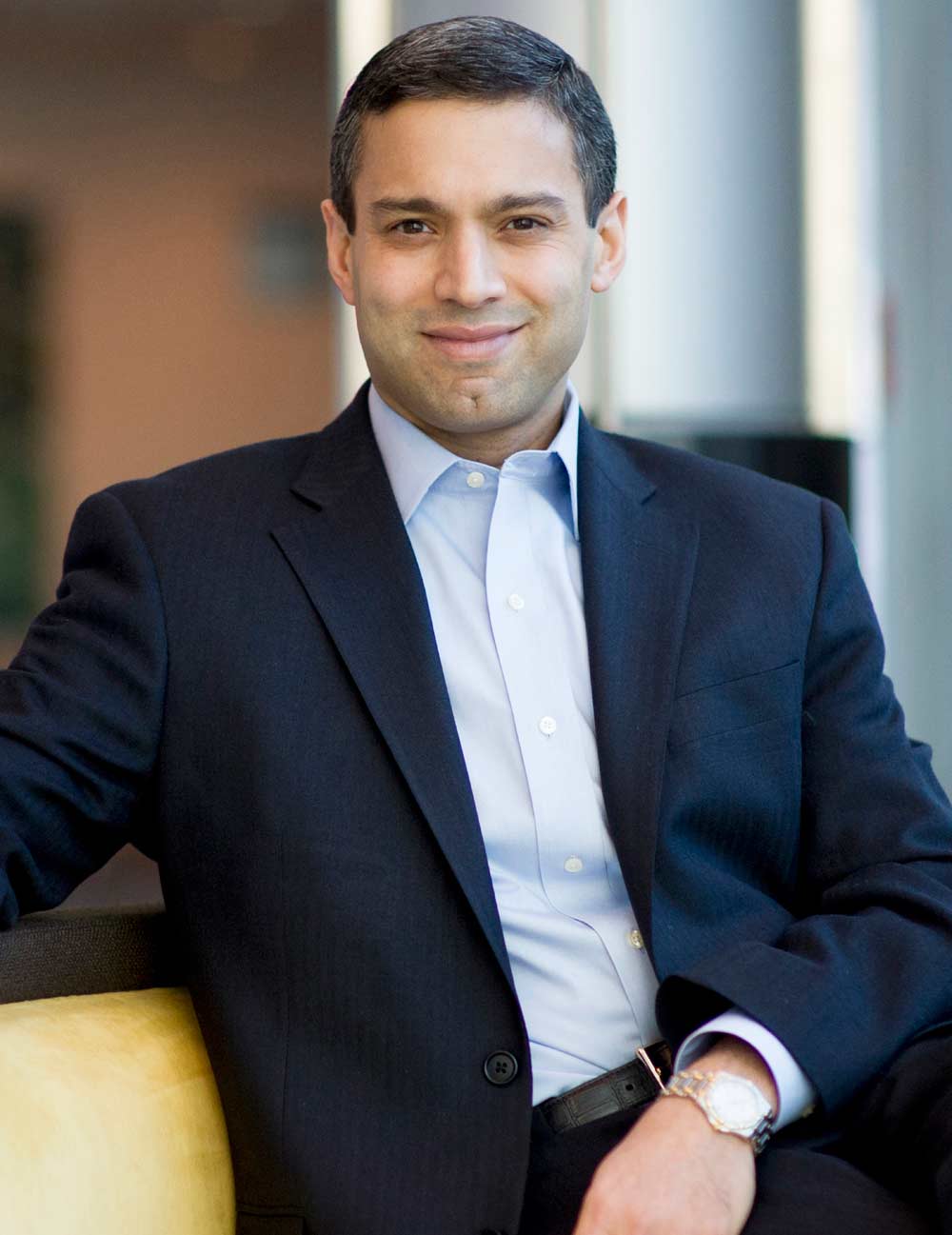Vikram Mansharamani wants people to see the world differently. A world-renowned economist, he uses a multi-lens approach to identify opportunities, reduce risk and help people shift from a threat-oriented perspective to an opportunity-oriented perspective.
Mansharamani will deliver the keynote Batjer Address on Dec. 3 at the 2018 Washington State Tree Fruit Association Annual Meeting and NW Hort Expo in Yakima, Washington. He regularly speaks on issues that drive disruption in the global business environment, has taught classes at Yale University and is a lecturer at Harvard University. In his book, “Boombustology: Spotting Financial Bubbles Before They Burst,” Mansharamani offers a framework for making better decisions in turbulent economic environments.

Vikram Mansharamani (Courtesy Vikram Mansharamani)
“My hope is to change the way people view the world they’re operating in,” he said, “and that means, literally, getting them to see the world differently.”
For tree fruit growers, he said multiple perspectives and a generalist approach can help them make sense of what’s happening in the world today, anticipate what will happen in the future, and develop a compass that keeps them on track for reaching their business goals.
“We have a whole bunch of cross currents underway, and I believe that virtually everything we’re seeing — which is trade war, populism, nationalism, the geopolitical tensions that may be brewing in different areas — almost all of them come back to four major transitions that are taking place in the world under the surface of everything else, that are the fundamental root causes of all the ailments we are feeling today,” he said.
Mansharamani disputes the common conception that populism is creating trade wars.
“I don’t think that’s the case,” he said. “What’s happened is there are some root fundamental drivers from these transitions, and these drivers end up pointing to things like inequality rising — creating a feeling of being left behind and those dynamics. Those are the real causes of what we’re feeling today. Populism is not causing trade wars. It may be exacerbating it, but it’s not causing it.”
No matter the cause, the current trade wars are creating unrest and uncertainty for tree fruit growers who are feeling the pain of heavy tariffs on their crops.
Mansharamani acknowledges that recognizing where we are and how we got here is important, but it’s really just history.
“What’s more important is not where we are but where we’re going,” he said. “And where we’re going has a lot to do with what’s happening in the rise of a global middle class.”
Mansharamani will discuss the risks of relying on a large American middle-class market, the things that can go wrong, and what might or could happen. He will also touch on demographics and what that means for immigration, migrant labor and labor in general, and he will speak about the cost of money and what it means for insurance, private equity and other entities that may view the tree fruit industry as an attractive investment.
What does all of this mean for tree fruit growers? “So, we’ve got a view of what’s happening in the world today,” he said. “What should you do? How do you manage it, given where we are today? And more importantly, knowing where we may be going, how do you change what you do today, anticipating what may be coming tomorrow?”
This incremental thinking is a hallmark of his generalist approach to analyzing global trends and applying certain knowledge of the past to create opportunities in the future.
While Mansharamani employs generalist thinking in his work, he recognizes the value of specialized thinking. The key, he said, is to be skilled in both ways of thinking when approaching various environments.
“In times of high uncertainty, I would argue that it is better to be a generalist or to take a generalist approach,” he said. In times of certainty and stability, when it’s clear what needs to be done and how to do it, Mansharamani said doing it really well, with a specialist approach, is probably appropriate.
His overall goal is to help people connect dots that they previously hadn’t connected between the different things that are happening in the world. “So, they may realize that the technology that they love is actually causing disruption in a part of the world that is causing them business angst,” he said, “but it’s the very same technology that gives them joy and happiness in their personal lives. My goal is to connect dots like that.”
But such a shift in thinking can create anxiety of its own.
“Oftentimes people say, ‘What do I do with this? You’ve scared me, I’m paralyzed!’” he said. “What I’m trying to do is make everyone aware that there are all these cross currents. It’s like you’re crossing through an ocean and you’ve got a current pushing you to the left and you’ve got a current pushing you to the right, and if you don’t have a compass for where you’re trying to go, well then, you’re not going to get there.”
With a long history of adaptation and innovation, the tree fruit industry will continue to look for ways to succeed in an increasingly complex global market. Looking at things differently may be a crucial step in ensuring that success.
“This is a crazy world we’re living in,” Mansharamani said, noting the midterm elections in the U.S., current events in Saudi Arabia and issues with emerging markets and currency markets. There are a lot of things to come that we can’t predict.
“Given that dynamic, I think it’s really important for us to look at developing a framework for getting through the uncertainty rather than thinking we know the answers,” he said. •
-by Jonelle Mejica






Leave A Comment